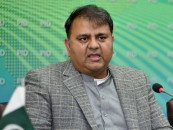70% of Pakistan’s female engineering graduates out of workforce: survey
59.2% of female engineering graduates in urban regions are out of labour force, reveals PRIDE-Gallup survey

A comprehensive analysis of the Labour Force Survey 2020-21, conducted jointly by Gallup Pakistan and PRIDE, has unveiled a disheartening reality for female engineering graduates in Pakistan. Shockingly, an overwhelming 70% of these highly qualified individuals find themselves either unemployed or outside the labour force.
Out of a total of 28,920 female engineering graduates, only 8,146, which account for approximately 28%, are currently employed. The remaining 6,054, or 20.9%, are grappling with unemployment, while a staggering 14,720, making up 50.9%, are not actively participating in the labour force, according to the research findings.
These alarming statistics paint a concerning picture for Pakistan, which stands as the fifth most populous country in the world. The demand for qualified engineers is undeniably high, even though the government has invested billions of rupees in subsidising public sector universities, particularly in the fields of medicine and engineering.
The research, which extensively utilised data from the Labour Force Survey 2020-21, focused on female engineering graduates, including those who have earned degrees at various levels, such as Bachelors, MS/MSc, MPhil, or PhD, across different engineering fields.
Read More: Women VCs call for inclusion in decision-making
The data was meticulously analysed and categorised into three distinct groups: employed, unemployed, and those who are out of the labour force. It was also broken down based on regional disparities, with a clear distinction between rural and urban areas.
The findings highlighted that 21.1% of all female engineering graduates reside in rural regions, while the majority, 78.9%, are concentrated in urban areas. Within rural regions, 43.9% of female engineering graduates are employed, 36.3% are unemployed, and 19.8% are not participating in the labour force—considerably lower than the national average of 50.9%.
In urban areas, the data indicated that approximately 24.0% of female engineering graduates are employed, while 16.8% are unemployed. Alarmingly, the majority, 59.2%, in urban areas have chosen to remain out of the labour force.
The regional disparity in employment opportunities was evident, with urban areas presenting significantly higher opportunities at 67.2%, compared to rural areas at 32.8%. However, the unemployment rate was lower in rural areas at 36.5% compared to 63.5% in urban areas. Regarding the total number of engineering graduates out of the labour force (14,720), 91.8% were in urban areas, with the remaining 8.2% in rural regions.
Another significant aspect highlighted by the research is the marital status of these female engineering graduates. A notable 64.2% of those not participating in the labour force were married, while 28.42% had never been married.
Read More: Doctors-scarce Pakistan has 35% unemployed female doctors
Bilal Gilani, the Executive Director at Gallup Pakistan, stressed that the situation where a large proportion of trained and educated females remain unemployed or disengaged from work is a critical issue requiring serious dialogue and attention in Pakistan. He emphasised that only 3 in 10 female engineers are currently employed, while 7 in 10 are not working.
Gilani further expressed concern about the substantial government investment in subsidising education for these female graduates, stating that if they are not working, it renders the government's investment a sunk cost. He urged policymakers and taxpayers to take notice of this issue, considering the financial implications for a resource-constrained country like Pakistan.
Dr Umer Khalid, Director of PRIDE, pointed out that a significant number of female engineering graduates opt to stay out of the labour force, particularly in urban areas and among the married population. This trend may be indicative of a societal inclination towards acquiring professional education to enhance marriage prospects.
He urged the government to reassess the allocation of seats in public sector engineering colleges and universities to ensure value for money.
The survey collected data from nearly 99,900 households across Pakistan, providing district-level representative results for the first time.



















COMMENTS
Comments are moderated and generally will be posted if they are on-topic and not abusive.
For more information, please see our Comments FAQ